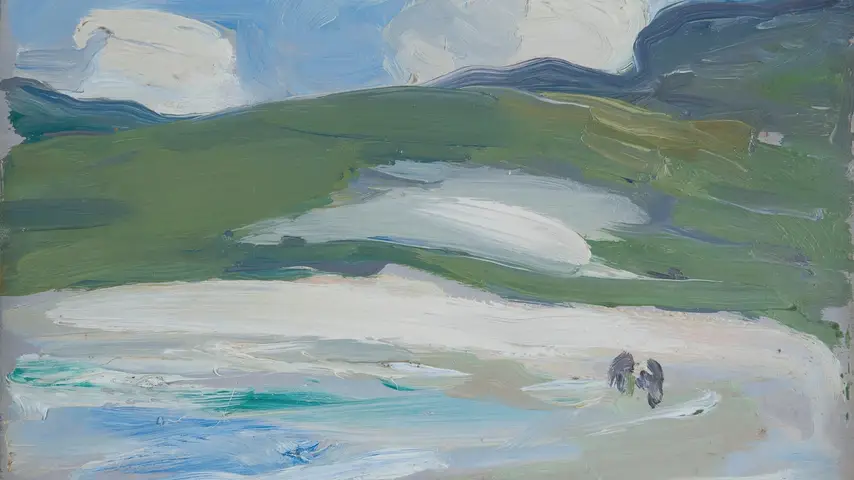Attention is the Beginning of Devotion
In her final collection of essays, Mary Oliver wrote, “Attention is the beginning of devotion.”

The Sands, Barra, Samuel John Peploe
Quotes, witty turns of phrase, and insightful points from my reading

The Sands, Barra, Samuel John Peploe
In her final collection of essays, Mary Oliver wrote, “Attention is the beginning of devotion.”
Don’t say you were a bit confused and sort of tired and a little depressed and somewhat annoyed. Be confused. Be tired. Be depressed. Be annoyed. Don’t hedge your prose with little timidities. Good writing is lean and confident.
William Stafford said, “I believe that the so-called ‘writing block’ is a product of some kind of disproportion between your standards and your performance….One should lower his standards until there is no felt threshold to go over in writing. It’s easy to write. You just shouldn’t have standards that inhibit you from writing….”
Donald M. Murray counseled writers to write a first draft from memory without consulting their notes. “Put your notes aside and write the first draft from memory. Follow the instinctive flow of the story so that you make unexpected connections as well as expected ones…”
According to Donald M. Murray, “Effective stories have one dominant message. You may have to write a first draft to discover the message, but there should be a single meaning that has priority over all the other meanings in the story…”
Donald M. Murray advised would-be writers to maintain a continuous dialogue with themselves about their work by keeping a notebook.
Anna Kodé said, “Phones, with their ability to transport you to other worlds, want to convince you that the one you’re stuck in doesn’t have anything worth paying attention to. But through my journaling, I realized something…”
David Taylor said, “Poetry is a native language of God and of the people of God. It is a mother tongue of the Word Incarnate on whose lips the psalmist’s words came naturally…”
In The Memory of Old Jack, Wendell Berry wrote, “His vision, with the finality of some physical change, has turned inward. More and more now the world as it is seems to him an apparition or a cloud that drifts, opening and closing, upon the clear, remembered lights and colors of the world as it was…”
In The Road, Cormac McCarthy wrote, “Maybe he understood for the first time that to the boy he was himself an alien. A being from a planet that no longer existed. The tales of which were suspect. He could not construct for the child’s pleasure the world he’d lost without constructing the loss as well and he thought perhaps the child has known this better than he…”
Michael Reeves said, “Joy always comes through encountering beauty, and in Christ is found the highest beauty.”
Bessel Van der Kolk said, “One thing is certain: Yelling at someone who is already out of control can only lead to further dysregulation…”
Blaise Pascal mused on our inability to live in and enjoy the present: “We do not rest satisfied with the present. We anticipate the future as too slow in coming, as if in order to hasten its course; or we recall the past, to stop its too rapid flight…”
Lesslie Newbigin said, “The business of the church is to tell and to embody a story, the story of God’s mighty acts in creation and redemption and of God’s promises concerning what will be in the end…”
Matthew LaPine said, “The problem with not distinguishing higher from lower appetite is that a person must identify deviant emotion as volitional, and therefore subject to the same sort of moral censure as a deliberate, external act…”
"Martirosyan and her colleagues spend three years investigating a case before relinquishing the deceased to a communal gravesite, a last resort in the county cemetery."
Elaine Scarry said, “Whatever pain achieves, it achieves in part through its unsharability, and it ensures this unsharablity through its resistance to language.”
Healing from an anxiety disorder is less about making anxious feelings go away and more about learning to tolerate them.